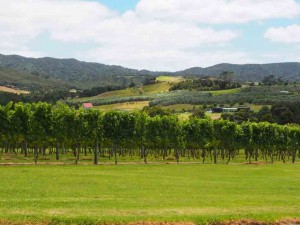Dr Cynthia Roberts, Ecologist Writes:
Lincoln University is proposing to cut the number of ecology staff by at least four. One of the arguments supporting the cuts and reorganization of courses is for Lincoln University to better position itself to focus on primary industry needs.
When I decided as a mature-aged student to return to study in 2000 after careers in education (Christchurch Polytechnic) and adventure-ecotourism (co-director Bushwise Women) I chose Lincoln University. This was because it had achieved national status for the quality and scope of its ecology courses, for its research and the community of students and researchers working together there.
Not only was there a focus on conservation but an understanding that a healthy functioning ecosystem underpins the wealth and well being of productive landscapes.
In other words this department had a reputation for the ‘BIG PICTURE’ and how without a knowledge and understanding of biodiversity and what is required to protect that then society itself is at risk.
I understand that the strategic direction of Lincoln University has three overarching aims of: “feed the world,” “protect the future” and “live well.”
 A productive-sustainable landscape is dependent on the knowledge and understanding of species (e.g. animal, plant and invertebrate behaviour are integral to this) and their contribution to the interconnectedness of ecosystem functioning. Nationally and internationally this is increasingly being encapsulated in the ideas around ‘Valuing Natural Capital’ (http://www.naturalcapitalcoalition.org) and is gaining traction as the essence of what underpins a healthy society.
A productive-sustainable landscape is dependent on the knowledge and understanding of species (e.g. animal, plant and invertebrate behaviour are integral to this) and their contribution to the interconnectedness of ecosystem functioning. Nationally and internationally this is increasingly being encapsulated in the ideas around ‘Valuing Natural Capital’ (http://www.naturalcapitalcoalition.org) and is gaining traction as the essence of what underpins a healthy society.
If Lincoln wishes to position itself for the future then I call on those who are making the changes to consider the cost to its national and international standing if an understanding of ecology and ecosystems does not underpin the teaching and research offered.
I am a graduate of Canterbury, Lincoln and the University of Tasmania and have just retired from the position of Science Advisor Ecology with the Department of Conservation (DOC). The Department is dependent on graduates such as those from Lincoln who understand conservation and the complexity of managing threatened species and restoration work. Your second aim of “protecting the future” includes addressing concerns about “species extinction” and “a need to progressively regenerate healthy ecosystems.”
In my work at DOC I have been impressed by the contribution that graduates from Lincoln have made and continue to make to conservation both nationally and internationally.
I understand the need to work within budget but maintain that the aim of the university in positioning itself for the future will fail if ecology is marginalized. Downsizing the ecology department will send the wrong message to both those involved in conservation as well as those who see sustainable agriculture, which is based on ecological principals, as the way forward for a healthy and economically productive society.
I firmly believe an understanding of ecological matters and repositioning Lincoln to ‘Value Natural Capital’ which underpins the third aim of ‘live well’ will be integral to a university that believes in a sustainable future for all.
Submissions on this issue can be made to Hilary.Sinclair-Hyde@lincoln.ac.nz
Written by Dr Cynthia Roberts cynthia@nzecologist.com 5th May 2014
Further reading:
Costanza, R et al (2006) The Value of New Jersey’s Ecosystem Services and Natural Capital. Gund Institute for Ecological Economics, Rubenstein School of Environment and Natural Resources, University of Vermont, Burlington, VT 05405


Latest Comments